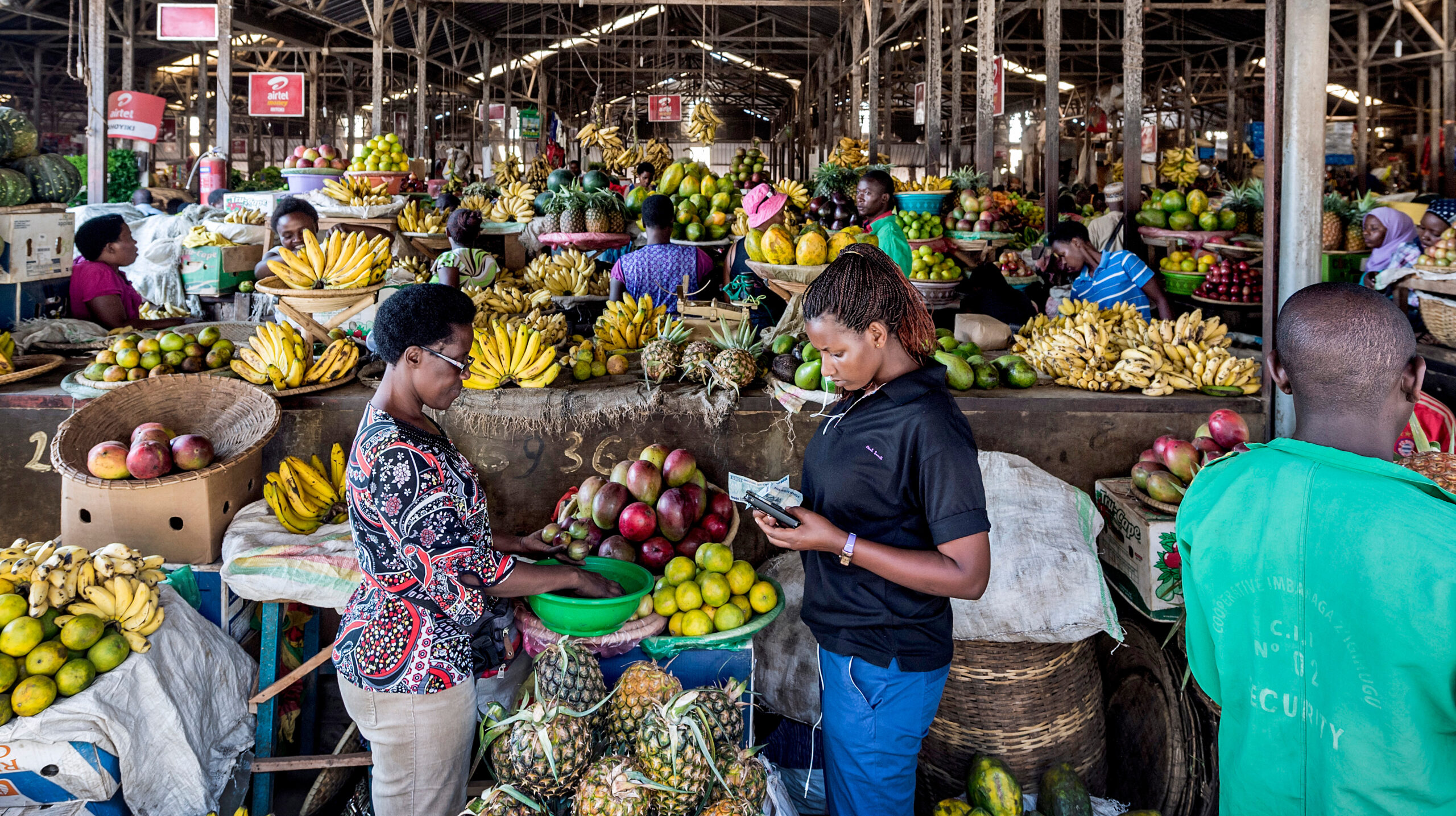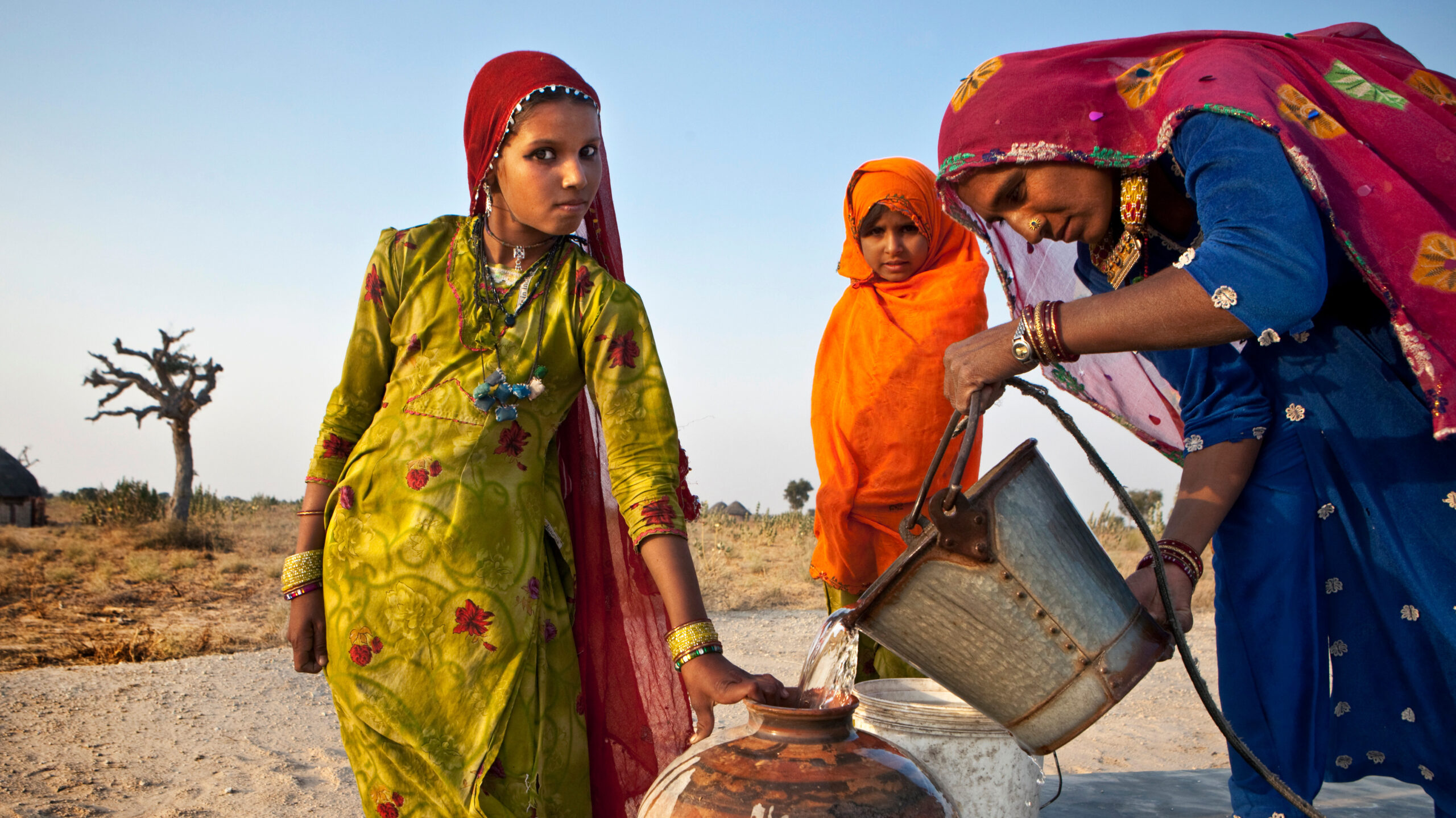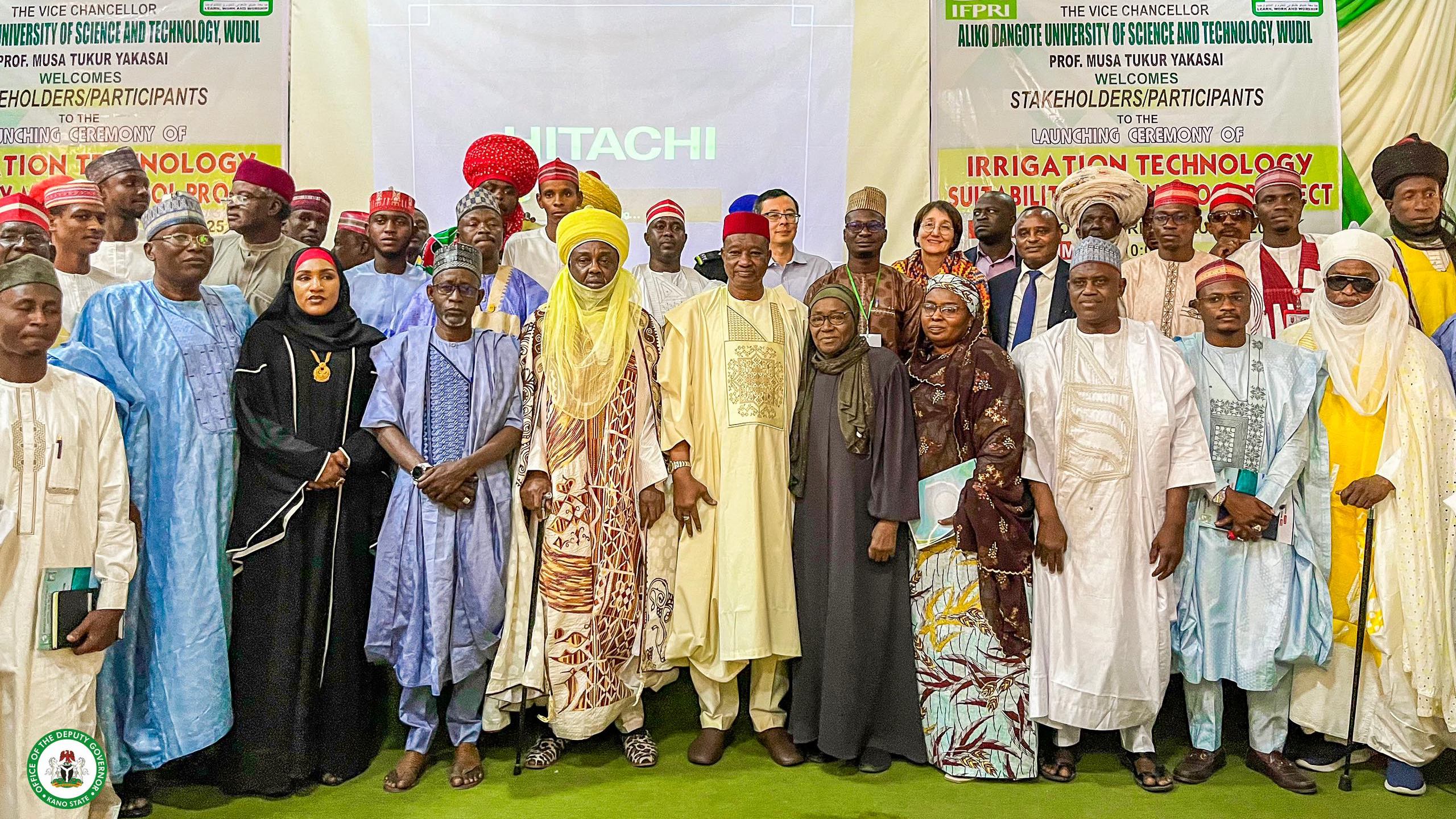Part of a series on key themes from IFPRI’s 2024 Global Food Policy Report. Read the other posts here, here, and here.
This year’s World Food Day theme, “Right to Food for a Better Life and a Better Future,” stresses the critical role of sustainable food systems in ensuring everyone’s fundamental right to nutritious food and healthy diets. As global food insecurity intensifies, the connection between food systems, diets, and health has never been more important.
The theme aligns closely with the evolution of nutrition research and practice discussed in our chapter on Diets and Nutrition in the 2024 Global Food Policy Report, which highlights the shift from focusing on merely producing more food for calories to promoting sustainable healthy diets that address all forms of malnutrition. The focus on sustainable healthy diets prioritizes equitable access to safe, nutritious, and culturally appropriate diets, while also addressing environmental sustainability. This approach is central to realizing the right to food.
A paradigm shift: The key role of nutrition and diets in global food systems transformation
Priorities in nutrition research and practice have evolved over the past century as new evidence has emerged on preventing and addressing different forms of malnutrition. Food systems have increasingly become the organizing principle for work on nutrition and diets, and food systems for sustainable healthy diets has emerged as the latest paradigm in nutrition.
This new paradigm positions healthy diets as key components of global food systems transformation. While historically, the focus was on combating food insecurity by increasing food production, particularly staple crops, the 2021 United Nations Food Systems Summit (UNFSS) reshaped global dialogues around hunger and malnutrition. The Summit proposed a new framework that positions healthy diets as one of the ultimate goals of food systems transformation, along with economic growth, social equity, and environmental sustainability. In addition, the Coalition of Action on Healthy Diets from Sustainable Food Systems for Children and All emerged from this summit to promote coordinated efforts in tackling all forms of malnutrition. Despite the broad consensus on the importance of this new approach, substantial uncertainty remains about how to handle the challenges and trade-offs involved in transforming food systems to improve diets and contribute to better nutrition.
Nutrition-sensitive agriculture: What have we learned?
The early years of the 21st century saw rising interest and research on the role of agriculture in accelerating progress to improve child nutrition, especially during the first 1,000 days of life (from conception to the second birthday). The concept of nutrition-sensitive agriculture (NSA) emerged as a new approach that incorporates nutrition goals and interventions in agricultural programs to foster nutrition impacts. Early NSA efforts focused on improving child nutrition, particularly during those critical 1,000 days, by addressing factors like food access, caregiving practices, healthcare, and a safe, clean environment.
A first breakthrough came with the pioneering work of HarvestPlus on breeding for nutrition, which showed that biofortified staple crops with higher concentrations of micronutrients could improve micronutrient intake and status as well as diet quality (see GFPR Chapter 6 to learn more). However, early studies showed little to no impact of other NSA programs on child nutrition outcomes or complementary feeding practices. Over time, NSA programs refined their approaches, with later studies showing positive effects on household food security, maternal and child dietary diversity, and health indicators. But significant improvements in child stunting and micronutrient status were only seen when NSA programs were paired with interventions like water, sanitation, and hygiene (WASH) or micronutrient supplementation.
These findings suggested that while NSA could improve diet quality and food security, achieving broader nutritional outcomes requires progress in other sectors, such as health, WASH, and women’s empowerment. More recent NSA evaluations suggest that focusing on improving diets, rather than child nutritional status, is a more practical and achievable goal for community-based NSA programs, especially in rural areas.
Food systems for sustainable healthy diets: Opportunities and challenges
The 2021 UNFSS expanded the focus from NSA to broader food systems, which encompass agriculture, food value chains, food environments, and consumers’ food and dietary choices. This shift acknowledges the coexistence of undernutrition, overweight, obesity, and diet-related noncommunicable diseases (NCDs) in both urban and rural areas of low- and middle-income countries (LMICs) due to changes in lifestyles and diets. With these changes, the world has seen a rapid move away from traditional diets and greater reliance on convenient and highly palatable processed and ultra-processed foods (UPFs), which are associated with poor health outcomes including micronutrient deficiencies, obesity, and related NCD risks.
NSA programs, while still essential for supporting poor households, especially in rural areas, aren’t enough on their own to tackle these complex modern nutrition challenges. A food systems approach, however, provides an opportunity to address malnutrition in all its forms by linking diets and food environments to sustainable food systems transformation and to other sectors including health, WASH, and women’s affairs..
Promoting healthy diets that are both nutritious and environmentally sustainable can lead to trade-offs. For example, in some LMICs, reducing animal-source foods (ASFs) to reduce food production’s environmental footprint can make it harder for women to meet their micronutrient needs—especially in places where fortified foods or nutrient supplements are inaccessible.
Increasing the consumption of nutritious foods like fruits, vegetables, whole grains, legumes, and nuts, which are universally recognized as essential components of healthy diets, can also be challenging. Consumption of these foods remains low worldwide because they are often not affordable, not available, or not part of local diets or cultural preferences.
Reducing the intake of UPFs, which is considered critical for improving diet quality, is also problematic. Open questions remain about what defines UPFs and what makes them harmful, whether it’s the processing itself or the nutrient composition. While some countries have adopted dietary guidelines recommending reduced UPF consumption, there’s still wide debate about the best way to limit UPF consumption and encourage consumption of fresh, minimally processed foods.
Climate change poses another major challenge, affecting food systems and nutrition by reducing food production and the nutrient content of crops. Extreme weather events can disrupt food production and supply chains, making it harder for consumers to both access and afford nutritious foods. In addition, elevated carbon dioxide levels have been shown to reduce the nutrient content of staple crops, particularly iron, zinc, and protein, which are critical for populations with limited access to industrially fortified foods. While small amounts of animal-source foods could help bridge these nutrient gaps, addressing climate change also calls for a shift toward more plant-based diets to reduce greenhouse gas emissions. In the face of these challenges, strategies like biofortification, food fortification, and targeted nutrient supplementation can play important roles in ensuring that all population groups meet their nutritional needs.
Food system transformation is essential to meeting these challenges and achieving sustainable healthy diets. But we the lack of methods, tools, and indicators needed to effectively analyze and monitor complex food systems and food system transformation. While efforts have been made to simplify dietary assessment methods and develop indicators for diet quality and environmental impact, there is still no global consensus on the best measures to use. Recent initiatives like the UN’s Healthy Diets Monitoring Initiative and tools like the Food Systems Dashboard are beginning to address this gap by providing standardized metrics and monitoring. However, further investments in data collection and analysis are needed to inform the national food system transformation agenda and nutrition plans and policies, especially in low- and middle-income countries.
Looking ahead
Adopting the food systems for sustainable healthy diets framework offers a unique opportunity to improve diets and nutrition at one of the most critical times in history, marked by a series of food, economic, climatic, and conflict crises that threaten human and planetary health. Anchoring sustainable healthy diets as a key outcome of food systems transformation can help tackle all forms of malnutrition. For policymakers, using the food systems paradigm creates new opportunities to revamp national dietary guidelines to incorporate health and environmental considerations, and to incorporate multi-duty actions into national nutrition plans and other relevant sectoral strategies. However, achieving sustainable healthy diets that realize the right to food will require coordinated efforts from across many sectors, including health, agriculture, education, social inclusion, and women’s empowerment.
This World Food Day, as we promote the Right to Food for a Better Life and a Better Future, we must recognize the critical role of the food systems for sustainable healthy diets approach for ensuring healthy diets for all.
Marie Ruel and Inge Brouwer are Senior Research Fellows with IFPRI’s Nutrition, Diets, and Health Unit.







